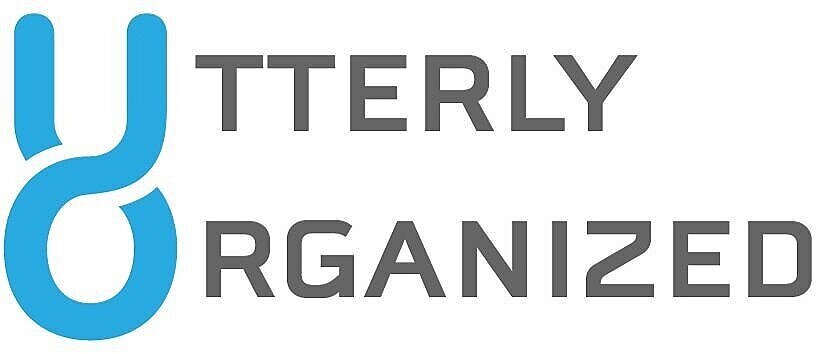Help for Hoarders
Here at Utterly Organized we offer help with the aspect of clearing, organizing, decluttering, downsizing, and transforming a physical space, but we are not qualified to engage in psychological therapy sessions with a hoarder. We will do our best to help a hoarder get back to ground zero, but cannot accept responsibility for a hoarder’s mental recovery in regards to their disorder.
Hoarding disorder is present in 2-5% of the population. People with hoarding disorders may have other mental health issues as well. Hoarding disorder can be related to Obsessive-Compulsive Disorder or perhaps ADHD or dementia. Males and older adults are more susceptible to hoarding.
Hoarders find it painful to let go of items, which is why they never do, and things accumulate so greatly. To them, the items they own have special meaning attached. Oftentimes an individual's self-worth can be tied to their ownership of objects.
Chronic hoarding exists when a room becomes unusable for its intended purpose. Hoarders are known to save items that others may normally view as worthless, and they will also save items that they believe they may need at some point in the future. Sometimes hoarders feel safer because of all of their possessions that surround them.
Hoarders also most likely experience distress when giving away items or even considering giving them away. There are people who collect a lot of things but are not hoarders, and are labeled as collectors instead.
Hoarding can be dangerous for an individual living in such a messy environment. An excess amount of objects in a home can be an extreme fire hazard and block points of exit during an emergency.
When trying to help someone that has been hoarding, it is important to focus on the person and not their stuff. Yes, you can help clear a space for a person but if you do not address the underlying issues then future problems are sure to arise.
It is important to be empathetic towards them, as hoarders are in a vulnerable position. Remember that recovery from hoarding is a process and it is important to make goals and set expectations.
Be sure to celebrate victories along the way, which can greatly encourage a hoarder on the road to recovery. Obviously it is helpful to a hoarder if you can work with them to physically organize and declutter their space. Lastly, seek the help of a qualified professional to treat hoarding disorder.
More Ways To Help Hoarders
Acknowledge the problem.
Make the problem known and ask for help.
Identify a small area of your space that you would like to work on. This could be a drawer, shelf, table, counter or floor space. It’s best to start small and build on your success.
Continue working on one area for small stints of time. If you feel you can work longer then do so. Work consistently until the chosen area is clutter free.
Make decisions about letting items go within 10-20 seconds. The longer you think about keeping an item the more you will become attached to it, and the harder it will be to let it go.
Rather than moving an item to a new location in your home, make the wise decision to get rid of what you do not need.
There is no need to hold on to items that you are “saving” for someone else. This just creates procrastination with deciding what to let go of. It’s not your responsibility to provide for others and they may not even want it anyways.
Set goals and timetables to complete those goals. This will force you to work even when you’re not feeling like it at the moment.
Take before and after photos so you can see the progress you have made. Reward yourself with something that won’t contribute to your list of items.
You must be the driving force behind getting organized. Yes, others can help but it is ultimately up to you to make the right decisions.
Set rules for your helpers, so that they know what they can most likely toss and what you may want to keep. Set rules for yourself about how much stuff you plan to keep (i.e., I will keep no more than 20 shirts, or no more than 10 plates).
Keep in mind that the bad feelings that emerge when you let an item go will only last for a short period of time.
Remember that by setting items free, you are potentially giving someone else a gift, and setting yourself free in the process.
After you have made a decision to let an item go, make sure to take that item out of sight so you won’t have a chance to change your mind about it at a later time.
Be aware of a situation that may tempt you to purchase more items. Remind yourself that you already have what you need and that adding more items will only become stressors.
Questions to Ask Hoarders
When was the last time I needed it?
When was the last time I used it?
How likely is it that I will use it in the future?
What is my track record of using items like this?
What is the impact of keeping the things in relation to my problem?
These hoarding tips have been brought to you by (Jasmine Harmin, helpforhoarders.co.uk/self-help/)








